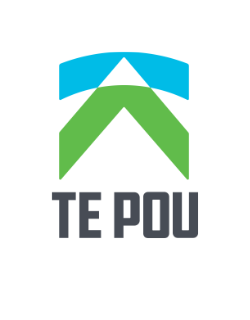He Kupu Whakataki
This lexicon is important for three reasons. First, it will increase knowledge and appreciation of mental health especially by whānau for whom te reo Māori is a preferred language. The translation of English words into Māori will greatly increase understanding of mental health conditions, symptoms and consequences and in the process will lead to better engagement between whānau and health services. While the conventional language of mental health may be familiar to providers, the terms used to explain those conditions are all too often relatively incomprehensible to many whānau as they are to many others.
Second, this glossary provides yet another opportunity for the promotion of te reo Māori. If te reo is to become a spoken language across all domains then it needs to be seen, heard and utilised in fields where it has been relatively silent. This resource not only recommends Māori words for specific English equivalents, it also illustrates the capacity of one language to unlock complex descriptions used in another, so that meaning and understanding is better conveyed.
Third, the way words are used is important. Often words previously used in a positive sense can acquire negative connotations. In former times, the notion of ‘asylum’ for example implied a space where comfort, protection and caring prevailed. Later, the same word came to mean an institution where containment, regimentation and involuntary admission prevailed. This vocabulary is especially welcome because it translates words that might carry stigma and discrimination into words that recognise humanity, hope and personal dignity. Patients and ‘service users’ become people again - tāngata whai ora; people with disabilities become tāngata whaikaha with an emphasis on gaining strength and ability; the somatic effects of anxiety such as palpitations – often the most worrying symptoms – are recognised in the word manawapā. In effect the language of mental health becomes more aligned to the people most concerned rather than to those who provide treatment and care.
The ‘Te Reo Hāpai – The Language of Enrichment’ lexicon resource represents an important milestone in mental health advancement and is a significant addition to the advancement of te reo Māori in all facets of life in Aotearoa.
Kia māia
Mason Durie KNZM
He mana tō te kupu
When I began this project, creating Te Reo Hāpai — The Language of Enrichment, the question I was asked mostly was — why? Why create a glossary of te reo Māori terms for use in the mental health, addiction and disability sectors? He aha te painga? — What is the benefit?
My answer was “He mana tō te kupu” — “Words have great power” — a whakataukītanga kōrero (proverbial saying) that our tauheke (elder) of Taranaki, Huirangi Waikerepuru, would often quote. Words have the power to explain, express and define how we understand and experience the world. If our knowledge and use of words is limited, inappropriate, outdated or unclear, this can be inherently conveyed in communicating our understandings and experiences.
Te Reo Hāpai is about enriching language, including ‘words of great power’ in te reo from a strengths base and a mana enhancing Māori worldview for the benefit of tāngata whai ora.
Wherever possible, Te Reo Hāpai combines the lived experience of tāngata whai ora and tāngata whaikaha with clinician and practitioner input. Feedback, information and guidance has also been provided by an expert advisory panel in creating over 200 interpretations for the unique terminology used by the mental health, addiction and disability sectors.
Te Reo Hāpai is by no means a comprehensive word list. More te reo research and creation in these sectors is urgently needed to continue to enhance language used. Space is available in this resource for readers to note iwi, rohe and kaumātua variations and contribute to future growth of Te Reo Hāpai – The Language of Enrichment.
I hope this is useful e hoa mā!
Tēnā rā koutou katoa.
Nāku noa nei
Nā Keri
He Mihi Whakawhetai
Kia whai wāhi au i konei ki te mihi ati ki te hunga nā rātou tēnei rauemi i manaaki, i tautoko kia puāwai mai ai.
For their generous gifts of time and wisdom on this project I would like to extend my heartfelt thanks to:
- the members of the advisory panel: Professor Sir Mason Durie, Whaene Moe Milne, Nigel Ngahiwi and Hingatū Thompson
- Te Taura Whiri i te Reo — The Māori Language Commission for funding support
- Jacob Tapiata and the rōpū waihanga kupu of Te Kunenga ki Pūrehuroa
- Ōwae Marae and then Manukōrihi Hapū Trustees
- Matt Frost and Peter Galvin for their insights into Autism
I'd also like to thank all the colleagues, friends and whānau who kindly provided questions, feedback and information.
Ka nui te mihi ki a koutou katoa
Nāku i runga i te ngākau iti,
Nā Keri Opai
